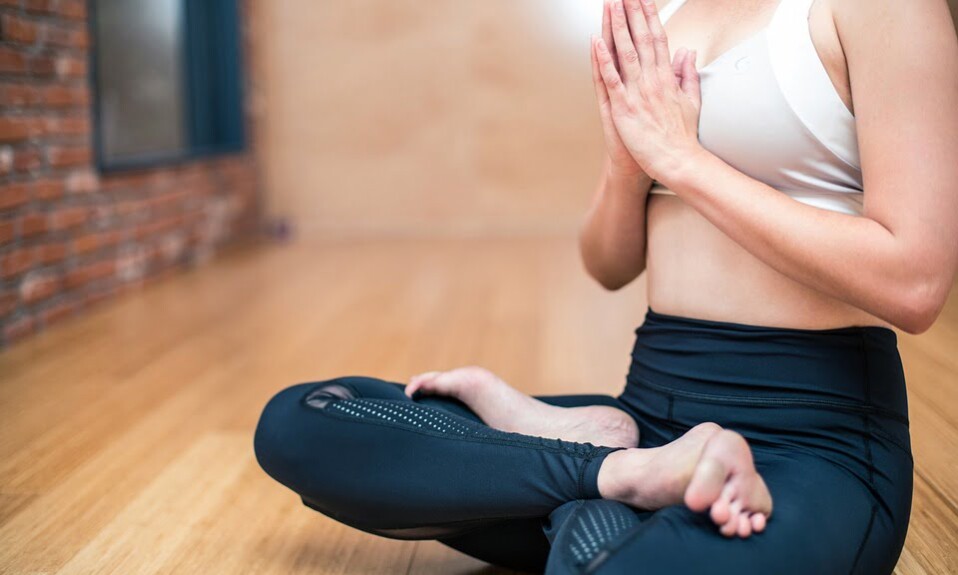[ad_1]
In this article, we will discuss the often elusive concept of mastering yoga. Many people are under the impression that mastering yoga takes years of dedicated practice, but the truth may surprise you. We will explore the various factors that contribute to mastering yoga and provide a realistic timeline for those looking to achieve mastery in their own practice.
What does it mean to master yoga?
Before we delve into the timeline for mastering yoga, it’s important to understand what it means to truly master the practice. Mastering yoga goes beyond being able to execute advanced poses or hold challenging sequences. It encompasses a deep understanding of the philosophy behind yoga, a strong connection to the breath, and a sense of inner peace and balance.
Mastering yoga is not about perfection, but rather about continual growth and self-awareness. It is about finding harmony between the body, mind, and spirit, and using yoga as a tool for self-discovery and personal transformation.
How long does it take to master yoga?
The timeline for mastering yoga is highly individual and can vary greatly from person to person. Factors such as natural flexibility, previous experience with physical activities, and commitment to regular practice all play a role in how long it takes to master yoga.
For some individuals, mastery may come after several years of consistent practice, while for others it may take a lifetime of dedicated study and learning. It’s important to remember that there is no set timeframe for mastering yoga, and the journey is just as important as the destination.
Can anyone master yoga?
Yoga is an inclusive practice that can be adapted to suit individuals of all abilities and backgrounds. Whether you are young or old, flexible or stiff, experienced or a complete beginner, anyone can work towards mastering yoga. The key is to approach the practice with an open mind and a willingness to learn and grow.
It’s also important to remember that mastery in yoga is not an all-or-nothing concept. Even small improvements and personal breakthroughs can be considered a form of mastery, and should be celebrated as such.
What are the benefits of mastering yoga?
Mastering yoga can bring a wide range of physical, mental, and emotional benefits. Physically, you may experience increased strength, flexibility, and balance. Mentally, you may find greater focus, clarity, and stress relief. Emotionally, you may feel more grounded, content, and in tune with yourself and the world around you.
Additionally, mastering yoga can provide a sense of empowerment and self-confidence, as well as a deeper connection to the spiritual aspects of the practice. Ultimately, the benefits of mastering yoga extend far beyond the physical and can positively impact every aspect of your life.
Conclusion
The journey to mastering yoga is a deeply personal and evolving one. There is no set timeframe for achieving mastery, as it is a lifelong pursuit of growth and self-discovery. Whether you are just beginning your yoga journey or have been practicing for years, remember that every step you take towards mastering the practice is significant and worthy of celebration.
FAQs
How often should I practice yoga to master it?
Consistent practice is key to mastering yoga, but the frequency and duration of your practice can vary depending on your individual goals and lifestyle. Aim for at least 3-5 sessions per week to see progress, with each session lasting 60-90 minutes. However, even shorter, more frequent sessions can be beneficial if a longer practice is not feasible.
Do I need to be flexible to master yoga?
Flexibility is not a prerequisite for mastering yoga, as the practice is about so much more than physical flexibility. While regular practice can increase flexibility over time, focusing on breath, mindfulness, and correct alignment is just as important in mastering yoga. Yoga is for every body, regardless of flexibility level.
Can I master yoga if I have physical limitations or injuries?
Yoga can be adapted to suit individuals with physical limitations or injuries, and can even aid in the healing process. Working with a knowledgeable and experienced teacher can help you modify poses and sequences to suit your needs while still making progress towards mastery. Always consult with a healthcare professional before starting a new exercise routine, especially if you have any existing physical limitations or injuries.
Are there different types of yoga I can master?
There are many different styles and traditions of yoga, each with its own unique philosophy and approach. Whether you are drawn to the meditative qualities of Yin yoga, the dynamic flow of Vinyasa, or the precision of Iyengar, there are countless paths to mastery within the world of yoga. Exploring different styles and finding one that resonates with you is an important part of the journey towards mastery.
What role does meditation play in mastering yoga?
Meditation is an integral part of yoga, providing an opportunity to quiet the mind, cultivate self-awareness, and deepen your connection to the present moment. As you progress on your yoga journey, incorporating meditation into your practice can help you develop mental resilience, emotional balance, and a greater sense of peace and contentment, all of which are essential aspects of mastering yoga.
[ad_2]





